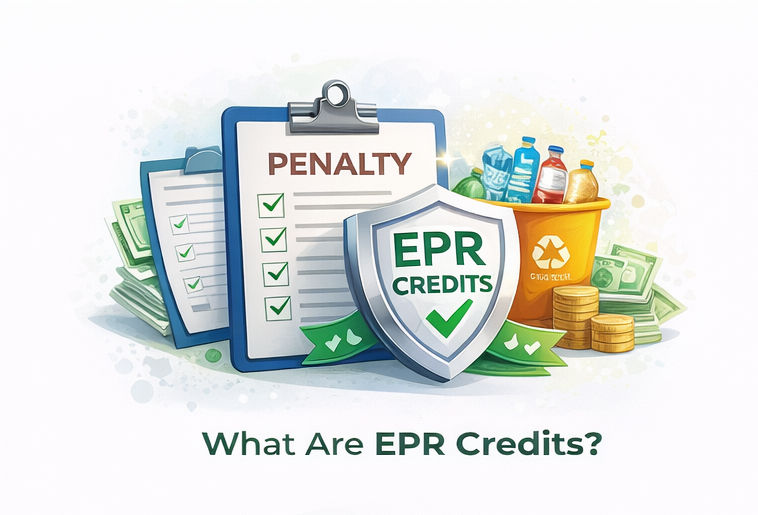EPR for Plastic Waste in India: A Complete Guide for Brands & Producers
- ReEarthify Solutions

- Jun 14, 2025
- 2 min read
As India’s plastic consumption continues to rise, so does its responsibility to manage waste sustainably. In this context, Extended Producer Responsibility (EPR) has emerged as a powerful regulatory tool to shift accountability for plastic waste management from the public sector to the producers, importers, and brand owners (PIBOs) who generate it.
In this blog, we’ll explore what EPR for plastic waste means, why it matters, and how businesses in India can comply while building a reputation for sustainability and circularity.

What is EPR for Plastic Waste?
Extended Producer Responsibility (EPR) is a policy approach under the Plastic Waste Management (PWM) Rules, 2016 (amended in 2022), which mandates that PIBOs are responsible for the collection, recycling, and end-of-life disposal of the plastic packaging they place on the market.
The goal is to reduce plastic pollution, promote resource efficiency, and accelerate the transition to a circular economy.

Who Needs to Comply with EPR?
If you are a:
Manufacturer of plastic packaging
Producer of packaged goods
Importer of plastic-wrapped products
Brand owner selling in India
then EPR registration with the Central Pollution Control Board (CPCB) is mandatory.
Categories of Plastic Waste Covered
EPR compliance in India covers four categories of plastic packaging:
Category I: Rigid plastic packaging
Category II: Flexible plastic packaging (single or multilayer)
Category III: Multilayered plastic with non-plastic layers
Category IV: Compostable plastics
Each category has separate targets for recycling, reuse, and end-of-life disposal, and businesses must report progress annually.
How the EPR Process Works
Here’s a simplified view of the EPR compliance process for plastic:
CPCB Portal RegistrationRegister as a PIBO on the CPCB's EPR portal and upload your documents.
Plastic Footprint AssessmentCalculate your plastic packaging usage across each category.
Target SettingBased on your footprint, annual EPR targets are auto-calculated.
Collection & ChannelizationYou must collect and process your plastic through certified waste management partners.
Certification & ReportingSubmit certificates (proof of recycling/recovery) and file quarterly & annual reports.
Why EPR Compliance Matters
Regulatory RequirementNon-compliance can result in heavy fines, product bans, and reputational damage.
Brand ReputationToday’s consumers and investors favor companies with a transparent ESG strategy.
Environmental ImpactEPR drives recycling, reduces landfill dependency, and lowers carbon footprints.
Global AlignmentIndia’s EPR aligns with international climate goals and UN SDGs like:
SDG 11: Sustainable Cities & Communities
SDG 12: Responsible Consumption & Production
SDG 13: Climate Action

How ReEarthify Can Help
Navigating EPR requirements can be complex—but that’s where we come in.
At ReEarthify, we provide end-to-end support:
CPCB registration
Plastic footprint calculation
PAN-India waste channel partnerships
Credit procurement and documentation
Quarterly and annual report filing
Our mission is to make sustainability simple and strategic.
Plastic waste is not just a pollution problem—it’s a system design problem. EPR is India’s bold step toward solving it. For businesses, it’s more than a regulation—it’s an opportunity to lead responsibly and build a truly circular brand.
Ready to take the first step?Contact ReEarthify today to get EPR-compliant with confidence.
.png)


Comments